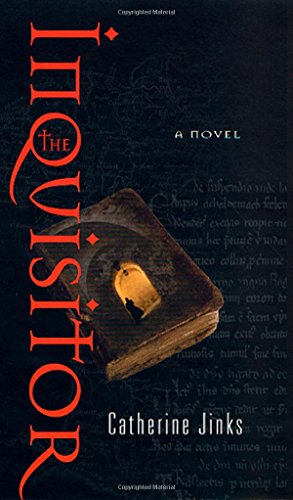The Inquisitor
Brother Bernard Peyre of Prouille, of the city of Lazet in the French Pyrenees, is surprisingly tolerant for a member of his profession. An inquisitor of heretical depravity in the year 1318, he is one of the few who does not believe that the sins of the fathers — heretical beliefs in the Cathar faith, in other words — are necessarily visited upon the sons. When fifty-year-old registers go missing, and later his superior, Father Augustin Duese (a rather voracious persecutor of potential Cathars and agnostics), is murdered in a rather unusual fashion, under instant suspicion are descendants of heretics accused and convicted years before. Other potential murderers are a group of seemingly questionable women living in a nearby mountain village. Brother Bernard attempts to look past superstition in order to ferret out the truth. In attempting to protect the innocence of others, however, his very actions become a source of contention amongst his fellow members of the Holy Office. He soon finds that he, once the accuser, is now the accused who must defend himself against heretical charges.
Half historical mystery and half thriller with unexpected elements of romance, The Inquisitor quickly immerses us in a world of mistrust, fear, and suspicion utterly unlike the one we currently know. Few explanatory details are provided, and readers unused to medieval locales may feel a bit unsettled. Yet those who wish to imagine the feel of cold stone monastery walls, smell the blood and corruption, or simply visit for a time a unique setting not often seen in historical fiction, there will be much here worth discovering. The mystery, as well, is wonderfully articulated, and the perpetrator (or is it perpetrators?) of the gruesome deeds described within are well hidden until the very end. Unfortunately, there are currently no plans to publish The Inquisitor outside of Australia. Since the publisher does not sell direct to the public, a special order direct to an Australian bookseller may be necessary.










